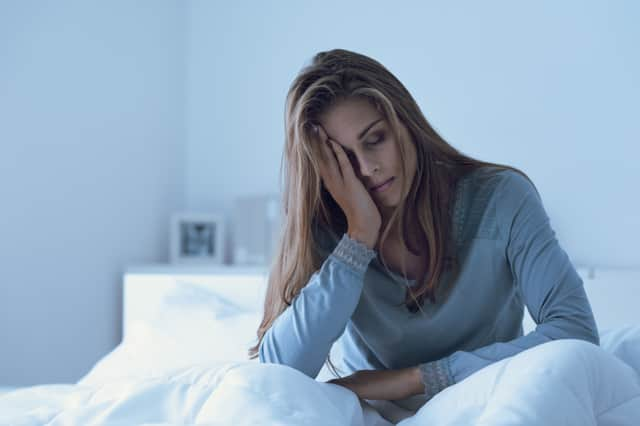This is the psychology behind 'lockdown fatigue' - and how to combat it


While most of us are far less active under lockdown than in our usual daily lives, many have reported feeling strangely fatigued.
Anecdotal reports of so-called 'lockdown fatigue' refer to the phenomenon of feeling tired and groggy, in spite of having lower activity levels over the past few weeks.
Advertisement
Hide AdAdvertisement
Hide AdThe experience has led to confusion among those affected, and appears to have been reported by people around the world - suggesting that the explanation may have something to do with the way we're wired.
So what's the psychology behind lockdown fatigue? We asked the experts.
Reduced exposure to natural daylight
One of the reasons why lockdown may be causing tiredness is that we're spending time indoors and receiving less natural light than we usually would.
Environmental Psychologist Lee Chambers explains, "We have been receiving less natural light through lockdown due to restrictions, and it’s that light exposure that signals the neurological process to become fully awake and alert".
Poor quality sleep
Advertisement
Hide AdAdvertisement
Hide AdMany people have reported struggling to sleep during lockdown - an issue undoubtedly heightened by feelings of fear and anxiety.
However, even those who do manage to get off easily may be experiencing poor quality sleep, increasing the probability of daytime fatigue.
Therapist Sally Baker says that intense dreams or nightmares may be causing poor quality sleep.
"Those who slept like content babes are often reporting fitful and broken nights as their brain tries to process what’s happening during the REM state of their sleep," she explains.
High state of alert
Advertisement
Hide AdAdvertisement
Hide AdEven while awake, and perhaps without us really noticing, our brains are constantly alert to the danger of the virus, and this can sap energy quickly.
Dennis Relojo-Howell, founder of psychology website Psychreg, says, "The constant barrage of news puts many of us on a state of high alert, which can deplete our energy."
Baker agrees, and adds that living in this constant state of hypervigilance "is similar to the symptoms of Post Traumatic Stress Disorder (PTSD)."
She notes that the government's 'Stay Alert' slogan may just make people feel "more alarmed and overwhelmed".
A lack of routine
Advertisement
Hide AdAdvertisement
Hide AdChambers says that the sudden change in routine as lockdown was called may have "disrupted our circadian rhythms" - the internal process that regulates our sleep cycle.
Some people are experiencing a lack of routine altogether, an experience which Relojo-Howell says can lead to stress and anxiety, and thus fatigue.
"A great deal of research has shown that monotony and boredom are tightly connected with stress and anxiety," he explains.
Chambers adds that this lack of routine can lead to brain fog, as we find ourselves experiencing time in a different way.
Advertisement
Hide AdAdvertisement
Hide Ad"We are even struggling to associate between days, as they have lost their typical structure, leading to a fog of everything looking the same," he says.
How to combat fatigue
According to Chambers, one of the best ways to beat lockdown fatigue is "to build routine, structure and scheduling back into life."
He suggests "a set wake up time, a time to go to work or start education, regular breaks to disconnect, time to connect with others close to us, and time to get outside and get our dose of natural light, activity and fresh air."
In addition to this, he recommends reducing caffeine and alcohol intake for better sleep, as well as "mindful creative activities that get your brain working, such as cooking, gardening and writing."